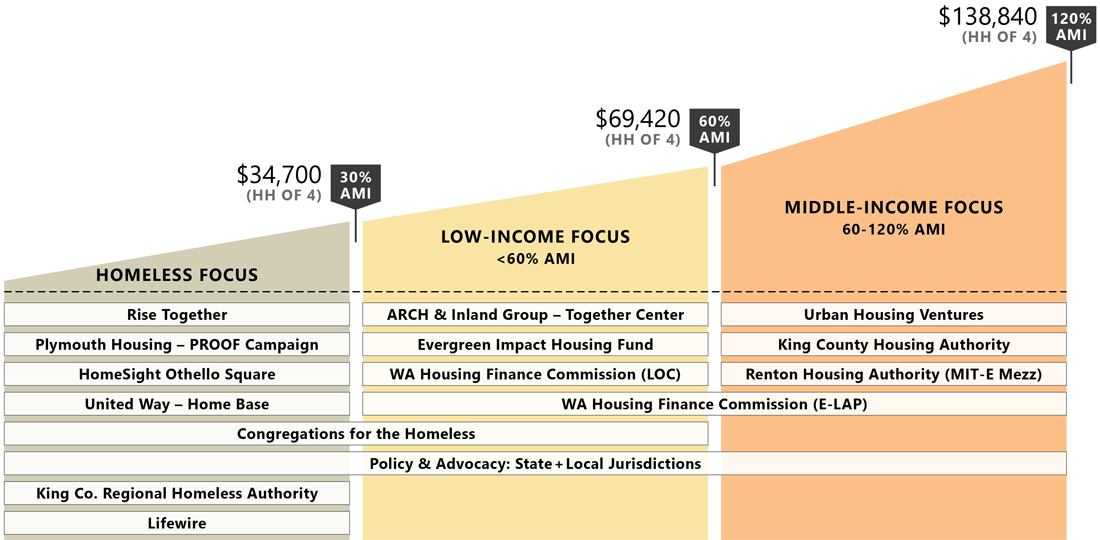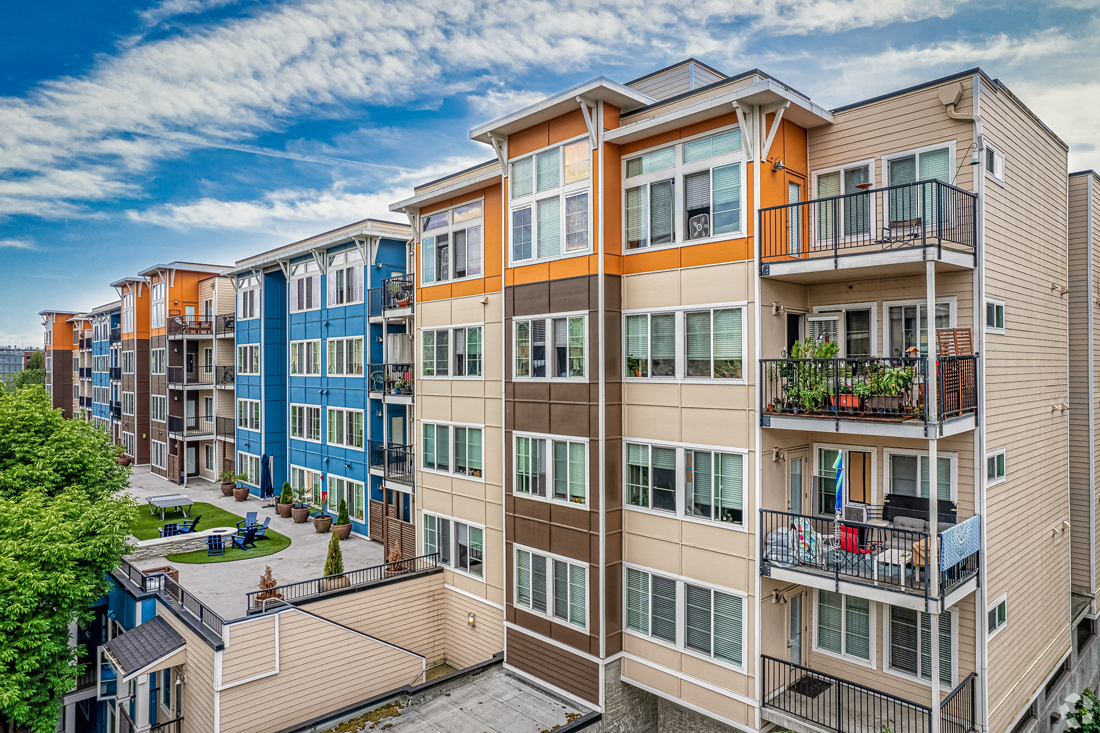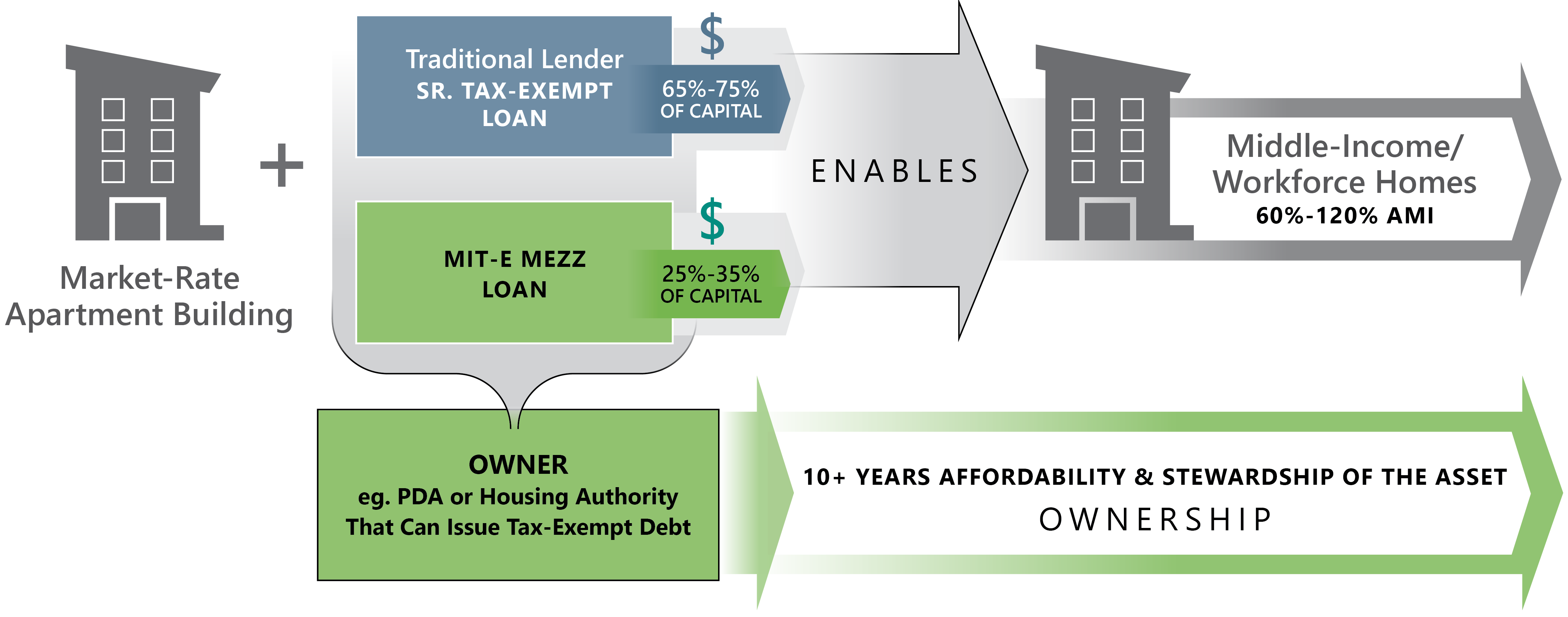This month marks three years since Microsoft announced its Affordable Housing Initiative to help address the region’s growing housing and homelessness crisis through a commitment of $750 million in housing grants and investments. Today, we are announcing Microsoft has allocated $583 million towards the preservation and creation of approximately 9,200 housing units in the Puget Sound region, which includes projects totaling $73 million in affordable housing investments and grants.
As we continue our work to address the region’s affordable housing crisis, this effort is about much more than dollars spent and units produced. The need for housing across income levels is growing and the problem is becoming even harder to solve. This region continues to have one of the most competitive markets in the country for land and real estate acquisition. Job growth is far outpacing housing supply, leading to scarcity and affordability challenges. According to analysis by Microsoft’s data science team, from 2011 to 2020, the amount of jobs grew 30% while housing grew 19%.
That’s why we are working closely with local governments, housing providers and investors to find new ways to make affordable housing development possible – through innovation in capital sourcing, advancements in housing policy and creative community partnerships.
Our work in this space is ongoing and many of our projects and initiatives will take years to come to fruition. At the same time, we feel an urgency to act, and be deliberate about how we can help change the system.
Projects being announced today
We are proud to announce several projects today that are the result of people coming together, working collaboratively and finding new ways to help solve problems through innovative partnerships.
- Based on its market success, we will increase our investment in our Expanded Land Acquisition Program with the Washington State Housing Finance Commission to $75 million. This builds on our existing $25 million commitment to the program and reflects the success of its ability to help developers quickly acquire land for affordable housing in an extremely competitive real estate market.
- We will utilize a new financing approach that enables organizations to acquire existing housing properties and convert them to middle-income housing (between $69,000 and $139,000 for King County). We supported Renton Housing Authority’s purchase of 95 Burnett Apartments with a $17 million investment using a new financing approach, championed by Microsoft, to help attract private investment into middle-income housing. Developing housing that is affordable to middle-income earners is difficult given the economics of the region. We are hopeful that this new financial model will unlock more opportunities for developers to create housing for people such as first responders, teachers and health care workers so vital to our communities.
- We will provide $3 million in cash grants across four organizations and a $3 million bridge loan to Congregations for the Homeless to support the regional homelessness response, including organizations building housing and supportive services to people living in east King County. These organizations each play a critical role in the emergency response to homelessness, including: the overall capacity of the regional system through We Are In; the first permanent shelter for men experiencing homelessness in Bellevue through Congregations for the Homeless; additional units of safe, supportive housing on the Eastside for survivors of domestic violence through LifeWire; and a new base at Redmond’s Together Center for 20 nonprofits that provide essential services required to help get people back on their feet.
Three years in – overall impact of the Initiative
Since launching this initiative, we’ve aimed to address needs across the housing spectrum from homelessness services and housing, to low-income and middle-income housing. The charts below provide details on how the $583 million has been allocated to date across a range of solutions including: the purpose, type and percent of investments across the portfolio; the dollars invested toward housing unit production and/or preservation; the partners involved in each project; and the geographic impact within the region.
Closing the funding gap with cost-effective financing to increase the affordability on existing projects has been a key driver of our investments. We supported projects that provided housing for our neighbors who earn around $69,000 or less as a household per year, such as childcare workers, nursing assistants, food service workers, security guards, paramedics, teaching assistants, school bus drivers and many more who play important roles in our daily lives.
We’ve supported projects that create or preserve housing for our neighbors earning between $69,000 and $139,000, including valued community members such as teachers, social workers, counselors, firefighters and electricians.
In addition to investments in housing that serves a broad spectrum of income levels, the community is coming together to make progress. King County, the City of Seattle and cities across the county are working together to address regional homelessness through the new King County Regional Homelessness Authority. United Way of King County’s Home Base Program has helped over 19,000 families avoid eviction and stay in their homes. Other local businesses, such as Amazon, have announced their own commitments to address housing issues. There is great momentum and we have so much more to do as a community to ensure people have access to housing.
The work ahead
After years of engagement with our partners, we have a better understanding of the challenges that underpin their work, and how those persistent problems can impede progress. We could fill textbooks with the amount of information we’ve learned. However, the overarching lesson is that it doesn’t just take money. To make a difference at the scale our region requires, we need more innovative financing tools that encourage market investment in the type of housing in greatest demand – and then pairing these resources with bold policy changes at the state and municipal levels that help to address our region’s growing population.
Innovative financing approaches: The MIT-E Mezz program
Existing federal programs subsidize low- and very-low-income units, and market rate units typically serve higher-income households, leaving a gap in funding for middle-income housing. Microsoft is pioneering what we call the Middle-Income Tax-Exempt Mezzanine program (MIT-E Mezz). MIT-E Mezz can help create new and preserve existing middle-income housing. This financing model aims to attract new private investment into middle-income housing with no public funding or capital investment from non-profit organizations or housing authorities.
By combining traditional senior bonds with MIT-E Mezz bonds purchased privately by Microsoft, the Microsoft Affordable Housing Initiative is able to fill a common funding gap that occurs when non-profits, housing authorities and public development authorities attempt to finance projects with just one financial tool. This strategy minimizes the decrease in investor returns when market-rate rents are either lowered to create middle-income housing or rents are kept stable, despite a rising market, to preserve and create middle-income housing by leveraging the savings that come with tax-exempt bonds to augment returns. As a result, we hope the strategy will attract both traditional and new investors looking for steady investment returns with lower risk and positive community impact.
In the first transaction, we partnered with the Renton Housing Authority to support their purchase of a 106-unit market-rate building to preserve or create affordable middle-income units without using public funding or financial resources from the housing authority. The City of Kirkland has paved the way to pilot a similar model in their community with Community Roots Housing (formerly known as Capitol Hill Housing).
For this structure to really succeed and make a noticeable impact on housing affordability, investors beyond Microsoft will need to embrace the MIT-E Mezz model, as well as other models to help attract more capital. We hope that others, including corporate investors, high-net worth individuals and family foundations lean in and add to this investment structure.
Public policies that encourage affordability and housing development
We are encouraged to see local government leaders stepping up to enact much-needed housing reforms that reduce costs, accelerate timelines and incentivize housing production. In the past year, the City of Bellevue has taken important steps forward. First, the city council reduced parking requirements at multi-family buildings close to transit hubs, which can save hundreds of thousands on overall construction costs and reduce the cost of housing. Next, they greatly improved their multi-family tax exemption (MFTE) program, revitalizing it into a true incentive program that is attracting new developers. Since the new rules went into place in July 2021, multiple multifamily projects are already indicating use of MFTE. In December, Bellevue adopted new zoning rules that can pave the way for more housing in a district’s revitalization. These efforts will lead to thousands of additional affordable housing units in the coming decade. Cities across King County are creating housing and transit-friendly communities rich in services and amenities centered around new light rail stations.
The state also has an important role to play. We will continue to advocate for more resources and supportive affordable housing policies at the state level, building on momentum from recent actions such as increases to the Housing Trust Fund and extension of the state’s multi-family tax exemption program. For example, in this legislative session, we are supporting Governor Inslee’s call for a large investment of one-time coronavirus relief funds into emergency housing and related supportive services. This is an extraordinary opportunity to leverage existing funding to get more people safely inside.
Though there has been positive momentum, significantly more work needs to be done to keep up with the growth and scale of the need for housing, particularly in areas like east King County. Bold steps are still required that keep up with the demand for affordable housing to ensure that we create a livable environment for everyone. We will continue to collaborate with community partners to advocate for those measures.
A regional approach to homelessness is necessary
People living unsheltered is a humanitarian crisis for the Puget Sound region. Housing needs are a continuum, and we believe the work we are helping to drive on housing affordability has both direct and indirect impacts on addressing the acute unsheltered crisis. We continue to strongly support the need for a coordinated, regional approach. After many years, the King County Regional Homelessness Authority is up and running. We are pleased to be able to grant $1.5 million to We Are In, a partnership of private sector and non-profit organizations supporting the Regional Homelessness Authority. We look forward to partnering with them to significantly decrease the incidences of homelessness across all of King County.
This includes our involvement with Eastside communities, helping build their infrastructure to immediately support unhoused neighbors while developing sub-regional plans to address long-term solutions. The exponential growth on the Eastside has exacerbated the need for greater access to human services in those communities. Bellevue’s new Eastgate Housing Campus – which provides a wide variety of housing including a men’s shelter, permanent supportive housing and workforce housing – is a notable example of how we can work together to address the complex issue of homelessness.
Onward
The challenges ahead are significant but, by working together as a community, we can make significant progress. We look forward to our continued work together.


